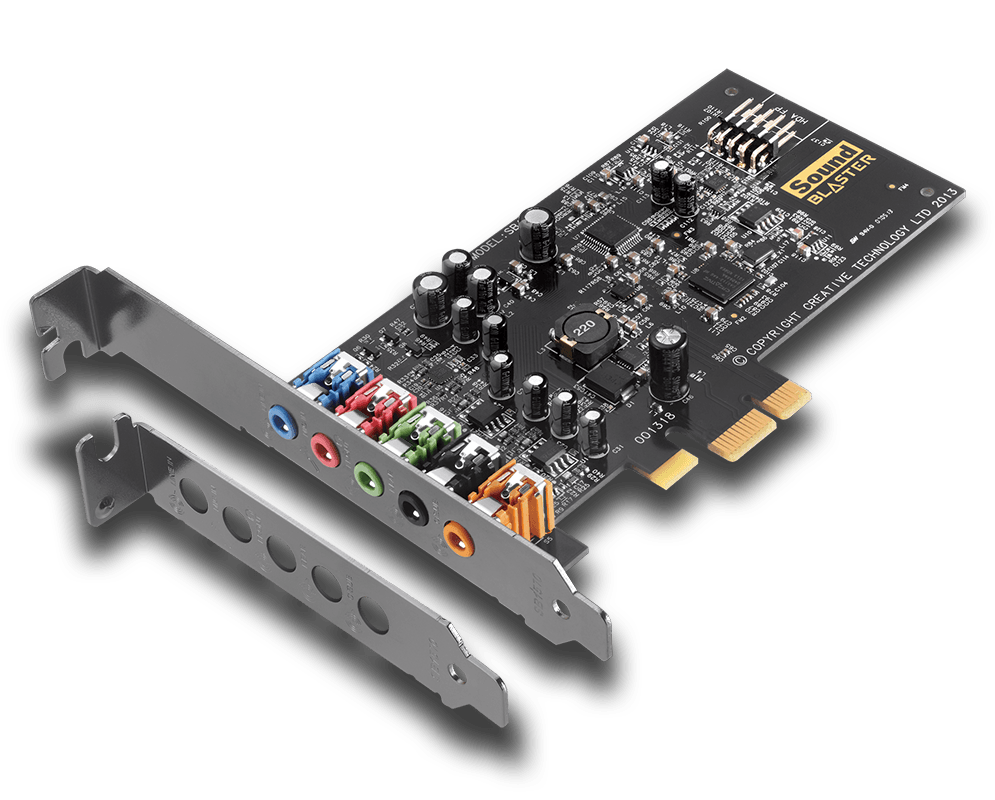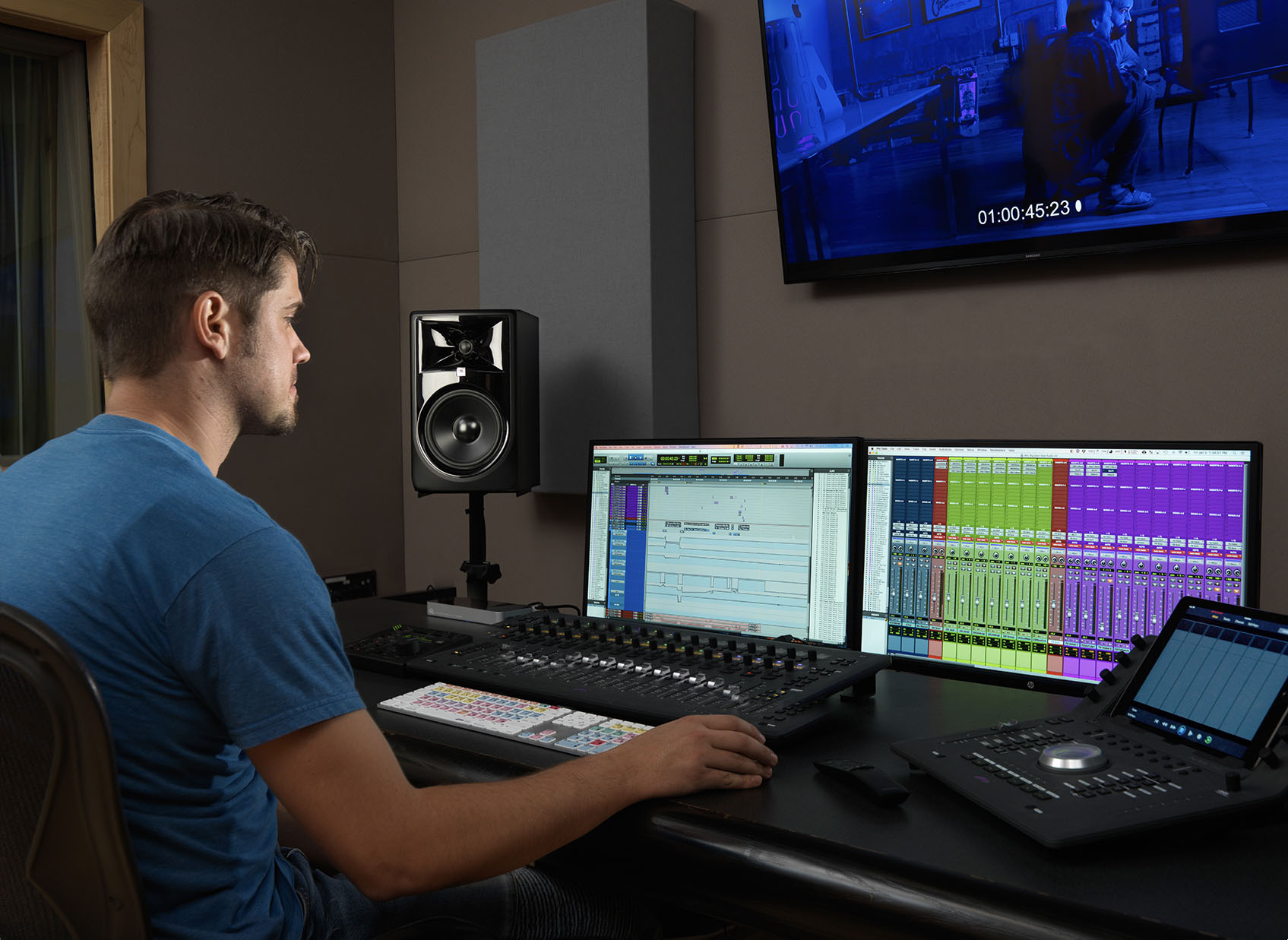For a home studio, best speakers are Yamaha HS8 and KRK Rokit 5 for accurate sound. Setting up a home studio involves choosing the right equipment, with speakers being a crucial component.
The speakers for a home studio need to provide a flat frequency response for accurate monitoring and mixing. Investing in high-quality speakers can greatly enhance the audio output of your recordings and ensure that your mixes sound professional. When selecting speakers for a home studio, factors such as size, power output, and frequency response should be taken into consideration.
We will explore the best speakers for a home studio and provide recommendations based on performance and affordability.

Credit: us.creative.com
Choosing The Right Type Of Speakers
Choosing the right type of speakers for your home studio is crucial for achieving high-quality audio output. Two key considerations when selecting speakers are Active vs. Passive Speakers and Studio Monitors vs. Hi-Fi Speakers.
Active Vs. Passive Speakers
Active speakers have built-in amplifiers, making them self-powered and simpler to set up. Passive speakers, on the other hand, require an external amplifier to function.
Studio Monitors Vs. Hi-fi Speakers
Studio Monitors are designed for accurate audio reproduction, offering a flat frequency response ideal for mixing and mastering. In contrast, Hi-Fi Speakers are optimized for enhancing sound quality, providing a more colored sound output.
Understanding Speaker Specifications
Wattage And Power Handling
Wattage: Indicates the power output of the speaker. Higher wattage doesn’t always mean better sound quality.
Power Handling: Refers to the maximum amount of power a speaker can handle without damage.
Frequency Response And Spl
Frequency Response: Range of frequencies the speaker can reproduce, typically noted in Hz.
SPL (Sound Pressure Level): Measurement of how loudly a speaker can play without distortion.
Factors To Consider When Selecting Speakers
Choosing the best speakers for your home studio is crucial for achieving professional sound quality. Several key factors should be considered to ensure that you make the right choice. Room acoustics and speaker placement, as well as your budget and long-term investment, play significant roles in selecting speakers that meet your needs.
Room Acoustics And Speaker Placement
Room acoustics are fundamental to the sound quality in your home studio. Pay attention to the dimensions of your studio space, as well as the materials used in the room. Consider investing in acoustic treatments to optimize sound reflection and absorption. Moreover, speaker placement is a critical aspect that directly affects the sound you perceive. Proper positioning of speakers can greatly impact stereo imaging and frequency response.
Budget And Long-term Investment
When choosing speakers for your home studio, it’s essential to evaluate your budget and consider the long-term investment. Keep in mind that quality speakers can be a valuable asset and may require a higher initial investment, but they can also provide superior performance and longevity. Compare the cost of potential speakers with their features and durability to make an informed decision.
Comparing Top Speaker Models
Discover the top speaker models ideal for a home studio. Compare leading options to find the best fit for your audio needs. Explore the features and specifications of each model to make an informed decision for your studio setup.
When it comes to setting up a home studio, selecting the right speakers is crucial for an optimal listening experience. With numerous options available in the market, it can be overwhelming to make a decision. This section will compare two leading speaker brands and their flagship models, providing you with a valuable insight into their key features.
Brand A’s Flagship Model Vs. Brand B’s Equivalent
When comparing Brand A’s flagship model with Brand B’s equivalent, there are several factors to consider. Let’s take a closer look at the following aspects:
Pros And Cons Of Popular Speaker Choices
To help you make an informed decision, here are the pros and cons of two popular speaker choices: Brand A’s Flagship Model:
- Pros:
- Exceptional sound clarity, with a wide frequency response range.
- Accurate and precise audio reproduction, ideal for professional mixing and mastering.
- Durable construction, ensuring longevity and reliability.
- Cons:
- Relatively higher price point compared to other options.
- Requires sufficient room space to fully appreciate its capabilities.
- May require additional accessories for optimal performance.
Brand B’s Equivalent:
- Pros:
- Competitive pricing, offering value for money.
- Compact design, suitable for smaller home studios with limited space.
- User-friendly controls, making it easy to adjust audio settings.
- Cons:
- Less detailed sound reproduction compared to higher-end models.
- Limited frequency response range, possibly affecting the accuracy of your mixes.
- May lack durability and longevity due to lower quality components.
By carefully considering the pros and cons of each speaker choice, you can find the model that best suits your needs and budget for your home studio. Whether you prioritize accuracy, affordability, or a combination of both, understanding these differences will help you make the right decision. Remember to research further and read customer reviews to gather more insights before finalizing your purchase.
Setting Up Your Pro Sound System
Setting up your pro sound system is crucial in creating a high-quality audio experience in your home studio. To achieve the best sound quality, it is important to calibrate your speakers and implement some useful tips. In this section, we will discuss how to calibrate your speakers and provide you with tips to optimize the sound quality of your home studio setup.
Calibrating Your Speakers
- Start by placing your speakers in the optimal position. A good rule of thumb is to position them at ear level and equidistant from the listener.
- Next, adjust the speaker’s angle towards your listening position to ensure optimal sound projection.
- Use a calibration microphone and software to fine-tune your speakers. This helps to compensate for room acoustics and ensures a more accurate sound representation.
- Adjust the volume levels on each speaker to achieve a balanced sound. This will help prevent one speaker from overpowering the other.
- Consider using a subwoofer to enhance low-frequency performance. Properly integrating a subwoofer with your speakers can greatly enhance the overall sonic experience.
Tips For Achieving The Best Sound Quality
- Invest in high-quality speaker cables and connectors to minimize signal loss and interference.
- Place acoustic treatment panels strategically in your room to reduce unwanted reflections and improve sound clarity.
- Ensure your audio interface and sound card are capable of delivering high-quality audio signals to your speakers.
- Experiment with speaker positioning and room layout to achieve the best possible soundstage and imaging.
- Regularly clean your speakers and keep them free from dust and debris to maintain optimal performance.

Credit: www.nytimes.com

Credit: pro.harman.com
Frequently Asked Questions For Best Speakers For A Home Studio
What Are The Best Speakers For A Home Studio?
The best speakers for a home studio are those that offer a balanced and accurate sound reproduction. Look for speakers with flat frequency response, good power handling, and accurate stereo imaging. Some popular options include the KRK Rokit series, JBL LSR305, and Yamaha HS5.
How Do I Choose Speakers For My Home Studio?
When choosing speakers for your home studio, consider your budget, the size of your room, and the type of music you will be producing. Look for speakers that provide a balanced and accurate sound, as well as good connectivity options.
It’s also important to listen to different speakers before making a decision.
What Size Speakers Are Best For A Home Studio?
The size of the speakers for your home studio depends on the size of your room. For small rooms, 5-inch or 6-inch speakers are generally recommended. Larger rooms may require 8-inch or even 10-inch speakers to provide enough low-end response.
It’s also important to consider the power output of the speakers to ensure they can fill your room with sound.
Conclusion
In a home studio, the right speakers are essential for producing top-quality sound. With a variety of options in the market, it’s important to choose speakers that cater to your specific needs. Whether it’s clarity, accuracy, or power, the best speakers can make all the difference in your audio production journey.
When selecting speakers for your home studio, consider factors such as size, frequency response, and connectivity options. By making an informed decision, you can elevate your music or content creation to new heights.